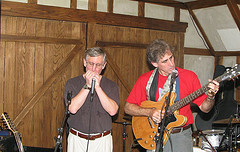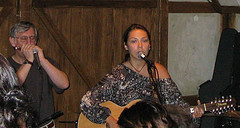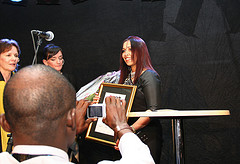Tarek Esber is senior analyst for Al Jazeera Mobile & New Media and based in Doha. Intrigued by his recent online updates, Journalism.co.uk sent him over a few questions. Firstly, we asked him specifically about the Al Jazeera forum which took place last month, and then asked for more general observations about use of social and new media in the Arab world.
So, we noticed you tweeting from the fourth Al Jazeera forum last month – what was that all about? [TE] The Fourth Al Jazeera Forum was built on the success of past Al Jazeera Forums to debate, discuss, and extend the discourse on the critical dynamics of the Middle East in the context of a globalised world. The forum focused on key topics such as the new players in this emerging multi-polar world, the historical context of the power shifts, and the media’s role in this new political landscape. In addition, two case studies examined the war on Gaza and the instability in the Indian subcontinent. The forum was attended by an international mix of journalists, analysts, strategists, academics, and intellectuals to help bring these issues into focus, as well as leading thinkers and strategists were present to explore the evolving face of the region, its place in the global landscape, and the challenges in reporting it in depth. Speakers spoke in either Arabic or English, sometimes both, and live translation was available in English and Arabic.
What were personal highlights for you? This was my first forum so the whole event was a highlight for me. In particular though was the fact that the Creative Commons Team were there with Joi Ito, their CEO, chairing the first Workshop at the Forum – ‘Building Successful Media Projects in Open Networks’.
That particular workshop had a fascinating discussion about how media organisations can open up their content to their advantage. Our Creative Commons repository came up as an example of this as well as the new US government’s use of CC Licences.
Another personal highlight was the case study about the reporting of the War on Gaza, especially having the opportunity to hear Robert Fisk talk about that conflict. The discussion was particularly interesting to me, given the role Social Media played in the PR battle between the two sides. It was also the first major conflict that we as a New Media team had been able to cover using a variety of New Media tools.
We picked up your comment via Twitter that quoted Al Jazeera English managing director Tony Burman: “Western interest in our [Gaza] content being distributed via New Media shows demand for our kind of message/method”
What are your thoughts on that, as a member of the new media team? I should add that quote to my list of personal Highlights. Tony Burman was referring to the reaction our New Media initiatives received during the War on Gaza.
I think it’s great and as a New Media Team it’s exactly what we aim to do. A major part of our job is discovering new methods of communication – using the latest tools and services to reach out to and interact with new audiences. Inevitably most of the people using these new services tend to be based in the west.
There was also a huge amount of interest in the Twitter feed we set up just for news about the Gaza conflict. 5,000+ followers from all around the world and for a lot of them it was their first exposure to News from Al Jazeera. The feedback we got was fantastic.
Our Livestation stream, which allows anyone who has an internet connection to watch our English and Arabic channels live for free, also proved very popular. During the War on Gaza viewer figures shot up six-fold and the largest pool of viewers were in North America, a traditional dark zone for Al Jazeera. We’re working on that. Since the War on Gaza we’ve started to make a push to get Al Jazeera English broadcast in Canada and the USA: the IWantAJE.com site gives more information.
Our YouTube channels, in Arabic and English, were just as important. They have always been extremely popular but during the time of conflict we were one of the most viewed channels on there.
Did you find the Twitter activity surrounding the forum useful / something to learn from in future? We hadn’t planned to do anything on Twitter for the Forum this year. It was really a spur of the moment thing – I was at this Forum and a lot of very interesting things were being said. My natural urge was to tweet the most interesting parts especially as this was an invite-only event.
This was a personal reaction rather than a Al Jazeera New Media Team initiative. Some of the other members of the team were tweeting in Arabic as well and we set-up a Hastag (#AJForum09) for people to follow. It was all done using our personal accounts.
In the future, and we already have plans to do this for the AJ Film Festival this month, we might be better off setting up an official channel for the Forum so people can tune in specifically to hear what is going on rather than tweet from my personal account. It’s certainly clear that the interest is there. We’re also thinking about other things we can do for the next Forum such as taking questions via Twitter and trying to get some of the live streams online.
What are the most salient points about new media that came out of the forum? Well we’ve already talked about most of the larger points: The Creative Commons repository and the potential for Open Networks, our work during the War on Gaza and how New Media is helping Al Jazeera reach new audiences.
In the ‘Reporting from the Fragile World: Can the Global Media Reconcile with Changes in the Middle East’ session, New Media came up quite often, especially the online PR battle during the War on Gaza came up a few times. The extensive use of social media tools by both sides was unprecedented, especially the amount of preparation the Israeli government did before the conflict started.
In the same session some good points were made by Fahmi Howeidy, an Egyptian columnist and author, about political bloggers in Egypt. He mentioned that in Egypt, people under 30 don’t read papers, they read blogs as it is their method of escaping the government’s oppression of the media.
He also said that, while he didn’t feel political bloggers had much of an effect on government policy in Egypt, what they had done is made people aware of the governments attempts to control the media and dissenting voices.
He said that in the past, when journalists were arrested and imprisoned for speaking against the government, there wasn’t much national or international outcry but when bloggers were arrested, there was. This took away the impression that government officials were ‘Gods’ – it humanised them which means that they can be held accountable for their actions.
How does uptake/use of new media differ in the Arab and western world? Very interesting question, and it’s something I’ve been learning a lot about since moving to Al Jazeera in Doha from the UK. It’s hard to generalize about the Arab world as a whole as it’s really a diverse region in many ways.
Social media, in particular, seems to have really been embraced in the Arab world. There are more and more interesting Arab voices in the blogosphere everyday opening up their cities, their lives and their countries policies to the whole world. There are also a good number of Arab Social Media Services and more are being created every month. There is WatWet, the Arab Twitter and Ikbis which is usually referred to as the Arab YouTube. There are also Arab blogging platforms such as Maktoob.
But I digress from the question: How does it differ to the west? When I think about new media in the Arab world the first thing that comes to mind is constraints. There are technological constrains in some parts of the Arab world – good internet connectivity can be very expensive and might not be widely available. Hosting can also be an issue. Local hosting companies are rare in some parts and are usually expensive. Western hosting can be bought but the cost is still high.
Then there is censorship. In some Arab countries you can’t access services like Blogger or YouTube. In others you might be able to get started but soon find that if your content isn’t acceptable then your site might be blocked.
The biggest difference for me though is the reason people use the services. I feel that in some parts of the Arab world the services are mainly used as a way to escape restrictions in daily life. As with the example above about Egypt, it gives young people the chance to talk about their lives and their governments in a way they can’t do in public. That’s not to say people in the west don’t do the same, I just get the impression that it’s more widespread in the Arab world.


